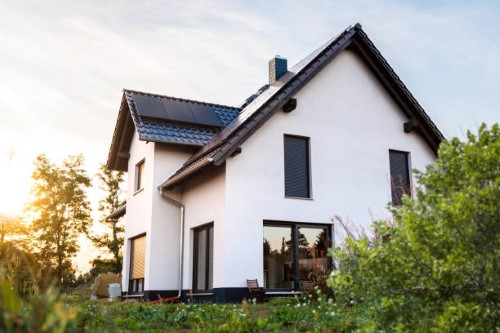The Rise of Dual Occupancy Homes: Why You Need a Specialized Planning Agency in Melbourne

You’re
considering investing in a dual occupancy home in Melbourne, drawn by the
promise of increased rental income and long-term capital gains. With the demand
for these properties on the rise, it’s crucial to navigate the complex planning
regulations that come with them. But have you stopped to think about the
potential risks and challenges that can derail your project? From securing
necessary permits to ensuring compliance with local regulations, the
development process can be overwhelming. As you weigh the benefits and
drawbacks, the question becomes: can you afford to go it alone, or do you need
expert guidance?
Benefits of Dual Occupancy Homes
The concept of dual
occupancy homes has gained significant attention in recent years, and for good
reason. When you invest in a dual occupancy home, you’re basically creating two
separate dwellings on a single block of land. This setup offers numerous
benefits, including increased rental income and potential long-term capital
gains. In Melbourne, where housing demand is high, dual occupancy can be a
lucrative option. You can maximize your property’s value by working with a
trusted agency like Xpress Building Design, which specializes in the design and
planning of dual occupancy homes. Their expertise in dual occupancy Melbourne
projects guarantees that you comply with local regulations and achieve your
investment goals.
Melbourne Planning Regulations
Explained
One critical aspect
of developing dual occupancy homes in Melbourne is traversing the city’s
complex planning regulations. You’ll need to understand the Victorian Planning
Provisions, particularly the General Residential Zone and the Residential
Growth Zone. These zones have specific requirements for dual occupancy
developments, including minimum lot sizes, setbacks, and building heights.
You’ll also need to comply with the Melbourne Planning Scheme, which outlines
policies and guidelines for development in the city. The scheme covers aspects
such as overshadowing, overlooking, and car parking requirements. Familiarizing
yourself with these regulations will help you navigate the planning process and
guarantee your dual occupancy development meets the necessary standards.
Challenges of DIY Development

Bypassing Melbourne’s
complex planning regulations is just the first hurdle in developing a dual
occupancy home. As you dig deeper into the development process, you’ll
encounter several challenges that can derail your project. One of the most
significant obstacles is traversing the nuances of building codes and zoning
laws. DIY development can lead to costly mistakes, such as non-compliant
designs or inadequate building permits. You may also struggle to secure
financing or manage the construction process effectively. Additionally, you’ll
need to guarantee that your development meets the requirements of multiple
stakeholders, including local authorities, neighbors, and future occupants.
Without proper expertise, you risk facing delays, fines, or even project
abandonment.
Importance of Site Analysis
When developing a dual
occupancy home, you’ll need to analyze your site carefully to verify its
suitability for the project. This involves evaluating the site’s topography,
including its natural slope, drainage patterns, and existing vegetation. You’ll
also need to ponder zoning regulations, nearby infrastructure, and neighboring
properties to confirm that your project complies with local planning policies.
Additionally, you should inspect the site’s environmental conditions, such as
soil quality, natural light, and wind patterns, to determine the ideal building
orientation and design. By conducting a thorough site analysis, you can
identify potential site constraints and opportunities, which will inform your
design decisions and guarantee a successful project.
Streamlining the Development Process
To streamline the
development process for your dual occupancy home, it’s vital to establish a
clear project timeline and budget from the outset. This involves setting
realistic deadlines and allocating sufficient funds for each stage of the
project. As you progress, identify and mitigate potential risks that could
impact the project’s timeline or budget. Break down the development process
into manageable stages, such as design, planning, and construction. By doing
so, you’ll be able to track progress and make adjustments as needed. A
specialized planning agency in Melbourne can help you navigate the development
process and guarantee that your dual occupancy home is completed on time and
within budget.
Conclusion
By partnering with a specialized planning
agency, you’ll navigate Melbourne’s complex planning regulations with ease and
minimize potential risks. A site analysis will help maximize your property’s
value, securing necessary permits and avoiding costly mistakes. With a clear
project timeline and budget in place, you can confidently set out on your dual
occupancy project, reaping the benefits of increased rental income and
long-term capital gains. This strategic approach will guarantee on-time
completion and a successful investment.
Comentarios
Publicar un comentario